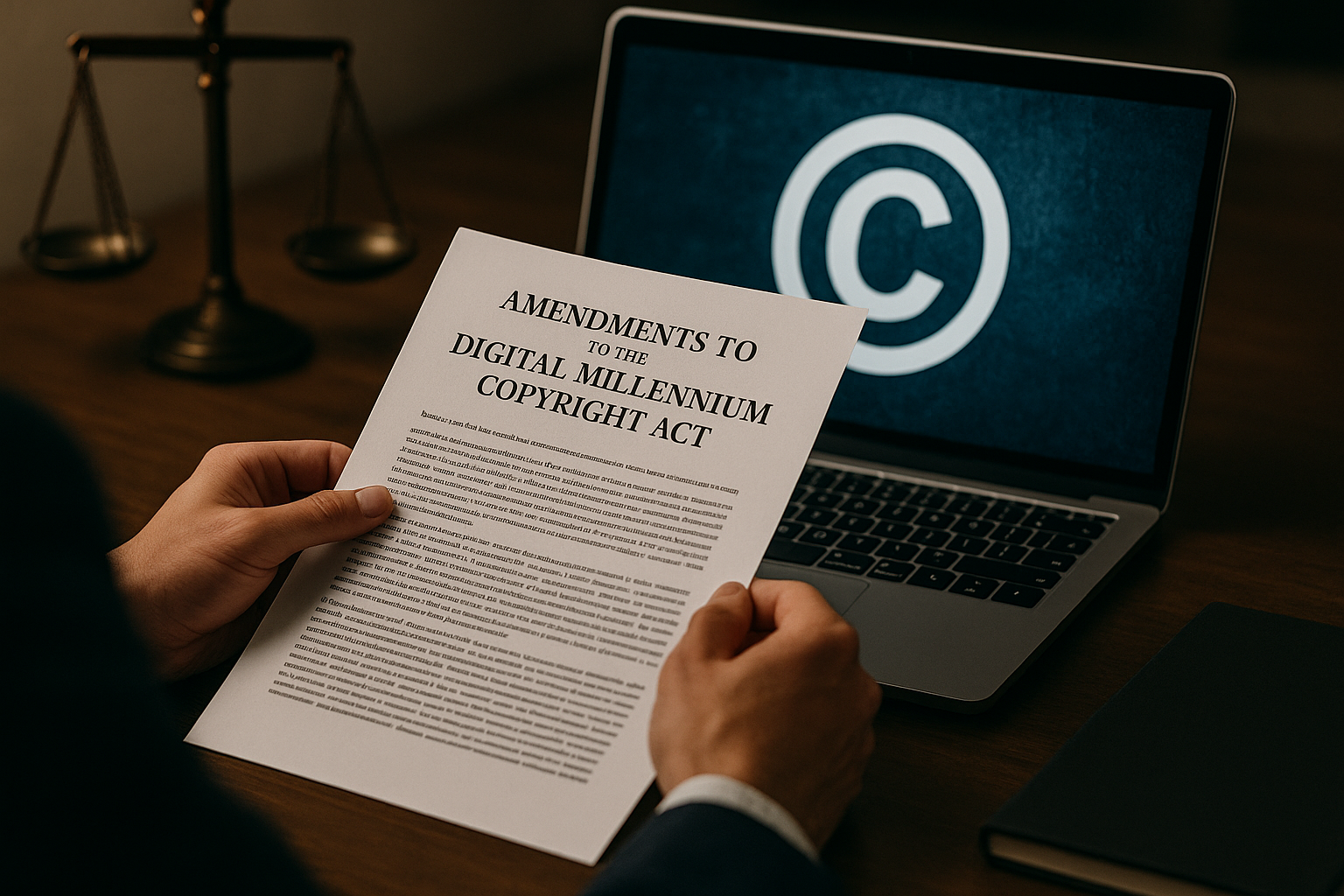The Implications of the Recent Amendments to the Digital Millennium Copyright Act
Introduction: Delve into the intricacies of the recent amendments to the Digital Millennium Copyright Act (DMCA). Understand its historical context, key legal developments, current changes, and the potential impact on society. The Digital Millennium Copyright Act (DMCA) was signed into law in 1998. This legislation was a response to the growing use of the internet and digital technologies, which posed significant challenges to copyright law. The DMCA was designed to protect copyright holders from digital piracy, while also providing certain safeguards for internet service providers and users. It has been a cornerstone of American copyright law for over two decades, shaping the way we interact with digital content.

The Recent Amendments to the DMCA: An Overview
The DMCA has recently been amended, with significant changes to its provisions. These amendments were enacted in response to the evolving digital landscape and in an attempt to better balance the interests of copyright holders with those of internet users and service providers. The changes include a new section on the use of copyrighted works for non-commercial purposes, expanded protections for internet service providers, and revised penalties for copyright infringement.
The Legal Implications of the DMCA Amendments
The amendments to the DMCA have far-reaching legal implications. The inclusion of a provision on non-commercial use of copyrighted works is particularly noteworthy. In essence, this allows individuals to use copyrighted material for purposes such as criticism, comment, news reporting, teaching, scholarship, and research, provided it is not for commercial gain. This is a significant step towards recognizing and protecting the rights of internet users.
Current Debates and Policy Discussions
The recent amendments have sparked debates and policy discussions. Some argue that the changes to the DMCA provide much-needed clarity and balance in the digital age. Others believe they may lead to increased litigation and uncertainty, particularly around the definition and scope of non-commercial use. These debates underscore the complexity of copyright law in the digital era and the need for continued dialogue and policy adjustment.
The Impact on Society
The impact of the DMCA amendments on society is yet to be fully seen. However, they are likely to shape the way we create, share, and consume digital content. The expanded protections for non-commercial use could foster creativity and innovation, while the revised penalties for copyright infringement may deter digital piracy. The amendments may also have implications for the digital economy, internet freedom, and the rights of both copyright holders and users.
In conclusion, the recent amendments to the Digital Millennium Copyright Act are a significant development in copyright law. They reflect the ongoing efforts to adapt legal frameworks to the evolving digital landscape, balance the interests of different stakeholders, and protect both copyright and the public interest. As the impact of these changes unfolds, it will be crucial to monitor their effects on society and consider further legal and policy adjustments as necessary.






